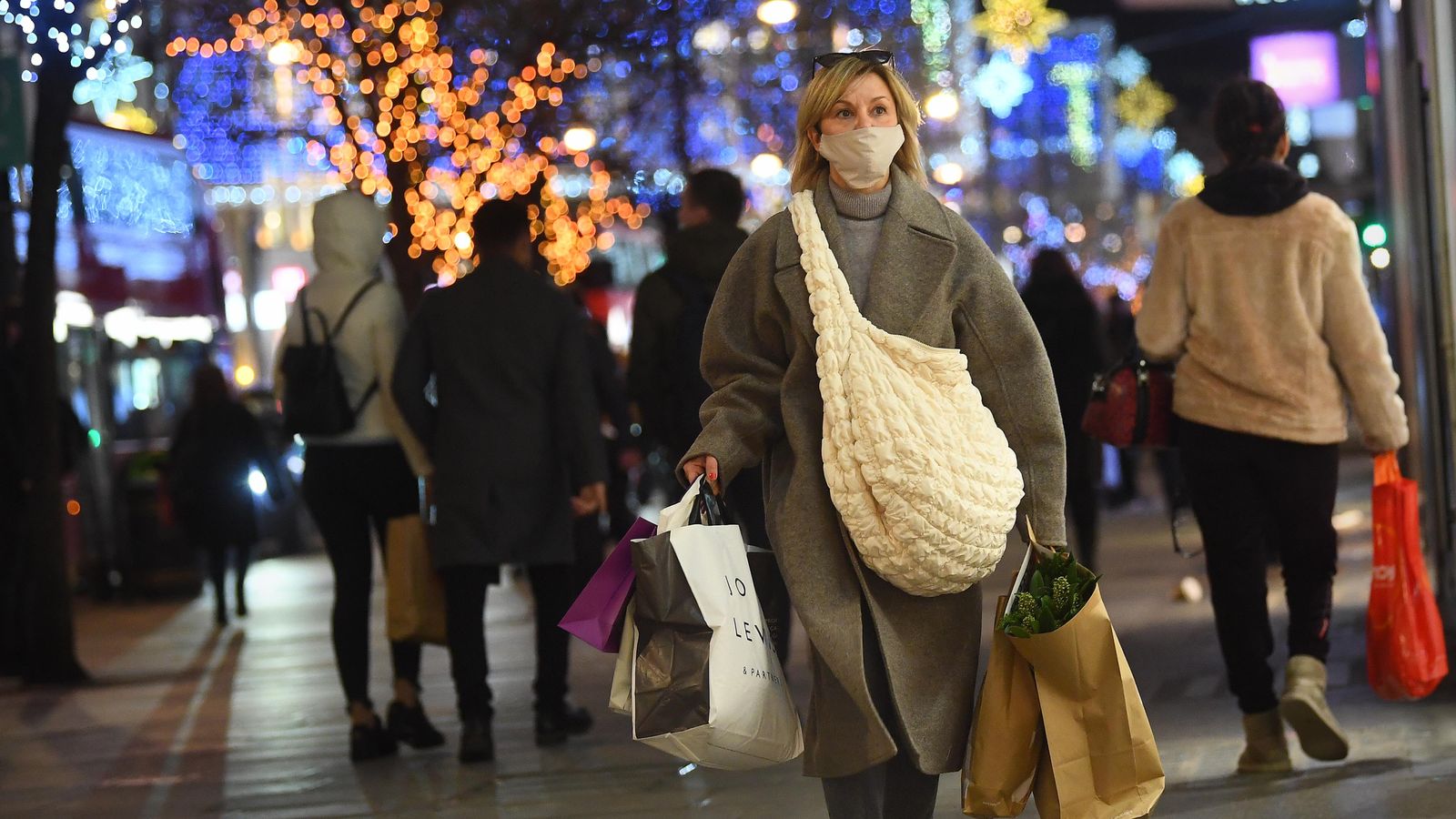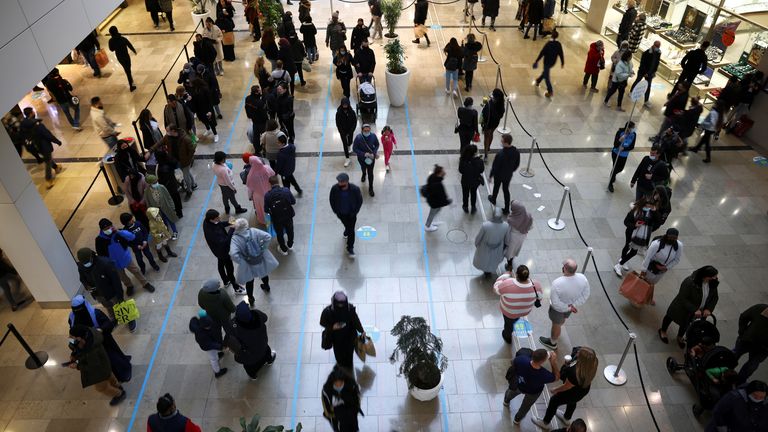Retail sales in 2020 saw the largest annual fall since records began in 1996, as retailers continued to suffer from the effects of the coronavirus pandemic.
Despite a 0.3% rise in sales volumes during December, the figure for 2020 as a whole saw sales down 1.9%, with clothing sales slumping by more than a quarter.
The slight rise in December was far less than the 1.2% increase expected by economists and left sales 2.9% higher than a year earlier, according to the Office for National Statistics (ONS) figures.
Live coronavirus updates from UK and around the world
While spending online surged by 46.1% in 2020, non-essential retail was closed for much of the year under rules brought in by the government to limit the spread of the coronavirus.
ONS deputy national statistician Jonathan Athow said the slight uptick in December was driven by an improvement in clothing sales.
But food sales were “subdued, as retailers reported lockdowns and restrictions on the sale of non-essential items impacted on footfall”.
Mr Athow said that over the year of 2020, clothing retailers had “fared particularly badly”, with a record annual fall of more than 25%, while restrictions on travel led to a record year-on-year decline in fuel sales.
Ian Geddes, head of retail at Deloitte, said the figures proved the “importance of an online shopfront and engaging virtual shopping experience”.
“Whilst the role of the physical store will remain competitive, the wider retail landscape will likely see reinvention. A new era of ‘hyper-localisation’ and ‘fast fail’ shops could herald a revived and more relevant high street longer-term,” he said.
“For now, pent-up demand is likely to see shoppers out in force once restrictions lift, as we saw in summer at the end of the first lockdown. Crucially, the reopening of the high street will this time coincide with the ongoing vaccine rollout, which should boost consumer confidence and see them return to stores once more.”
The UK economy shrank by 2.6% in November, mainly due to a four-week lockdown in England and similar measures in other parts of the UK.
With non-essential retail still closed under government rules, most economists expect a further contraction in the next financial quarter.
Susannah Streeter, senior investment and markets analyst at Hargreaves Lansdown, said: “Big chains that have mastered the art of selling online via click and collect and deliveries have reaped huge rewards. The value of online retailing sales increasing by 46.1%, the highest annual growth in a decade.”
She pointed to supermarkets, DIY and household goods as particularly examples.
“These trends are not going away anytime soon, with shoppers forced once again to browse the virtual aisles from the comfort of their sofas,” she added.
“With many weeks or even months of lockdown ahead of us, it’s likely these habits will become even more engrained in our psyche as physical stores stay locked and empty.”

